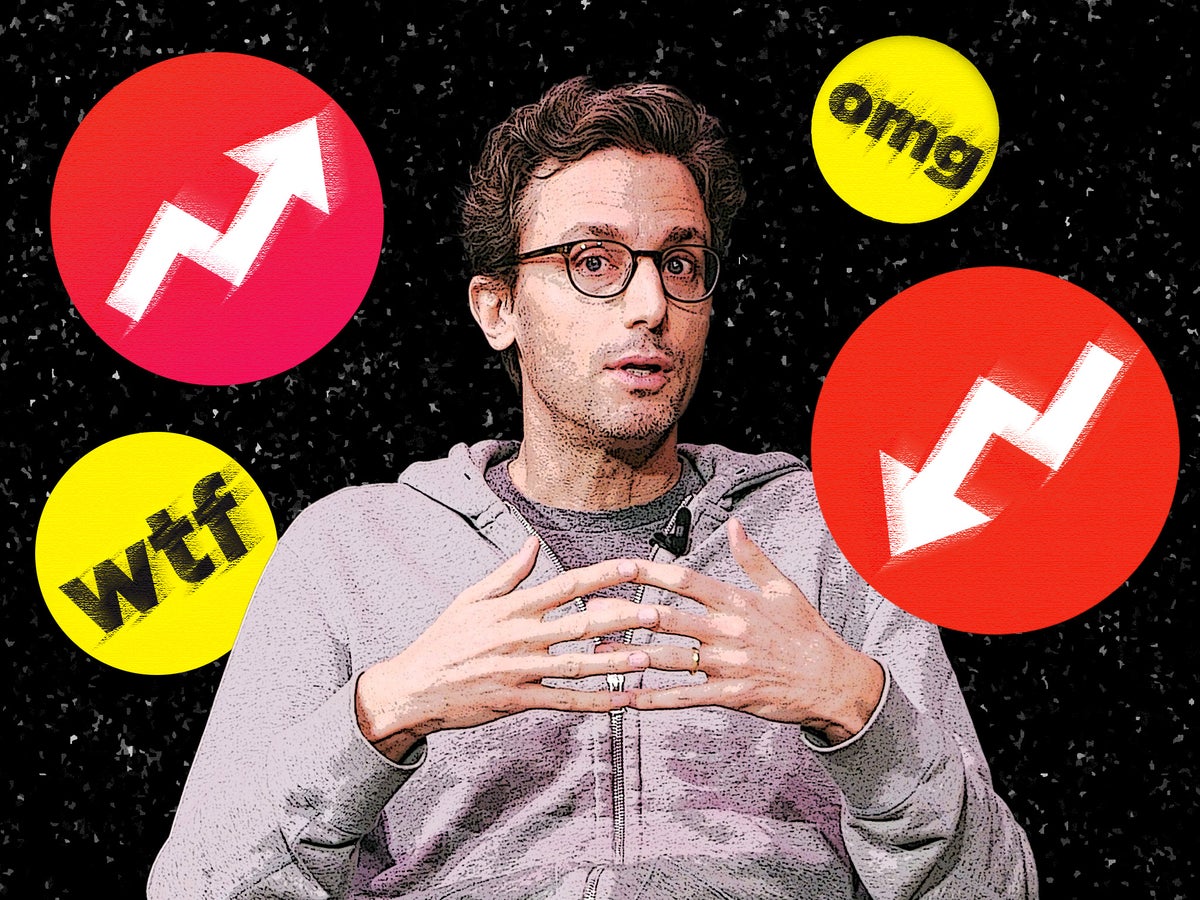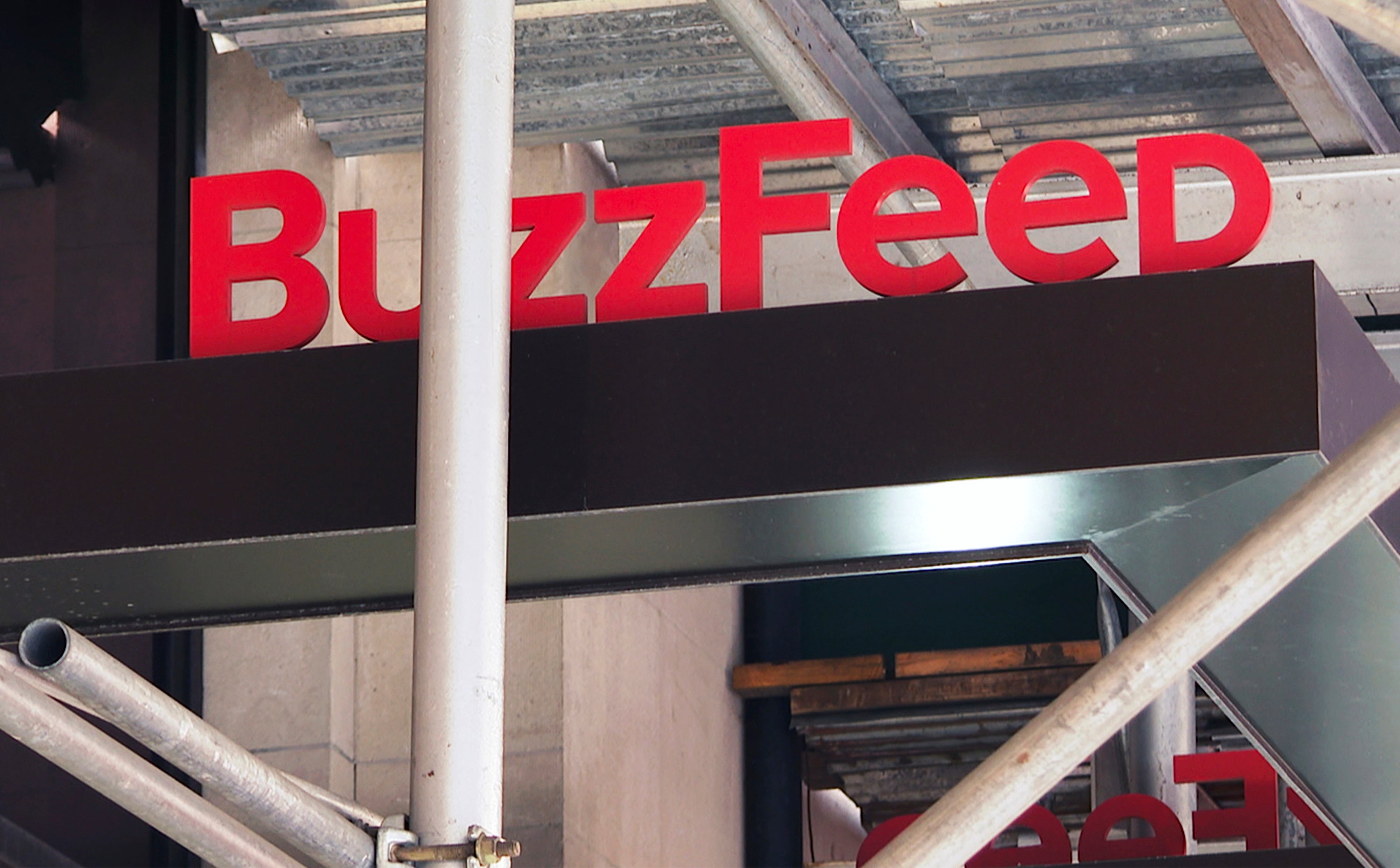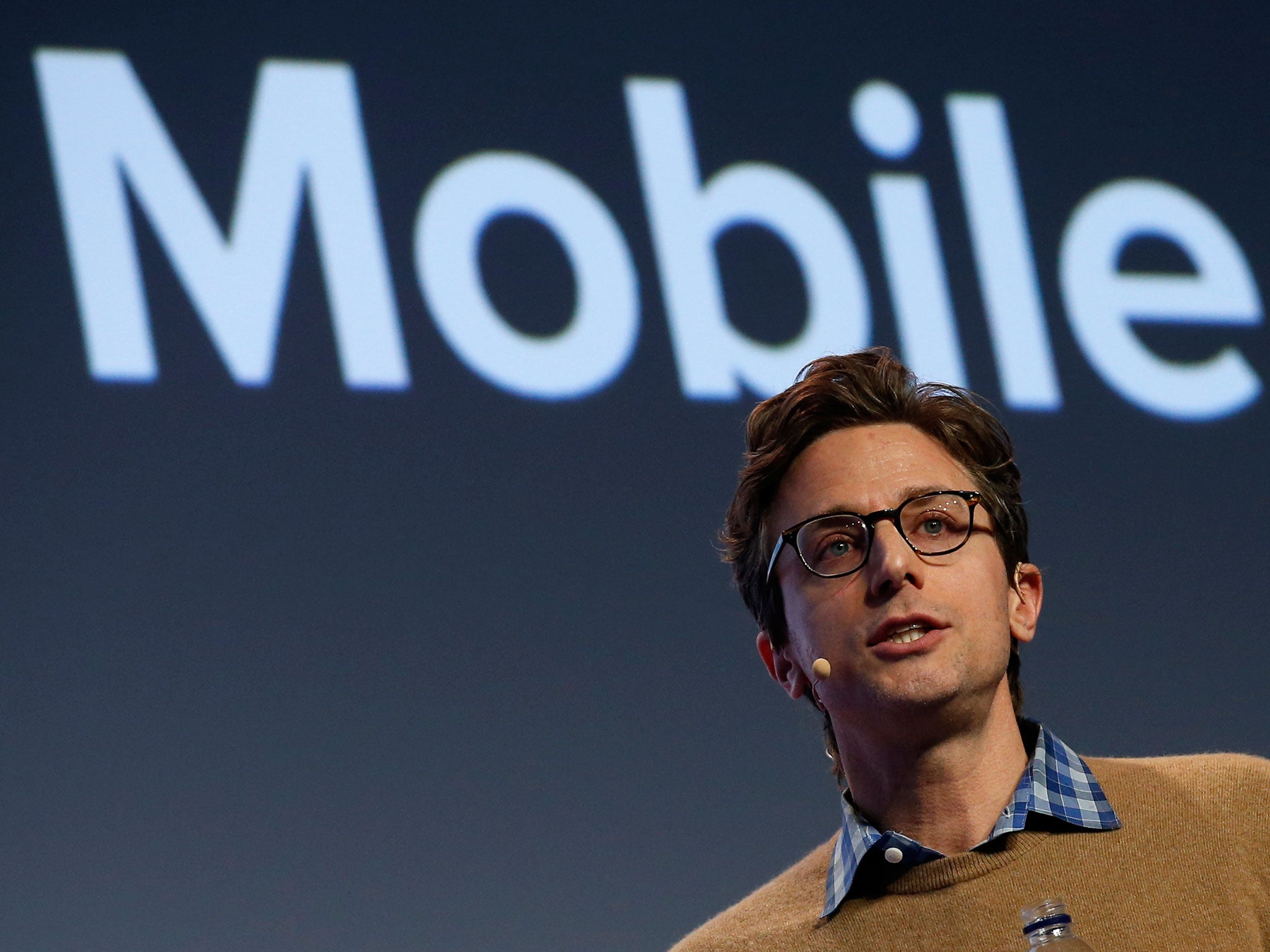
On Thursday, BuzzFeed’s co-founder Jonah Peretti announced he was closing the site’s pioneering digital news division after 12 years.
A punishing “tech recession”, slowing advertising market, and a decoupling from the social media giants that had provided much of their traffic had rendered the business no longer viable, Mr Peretti said.
“I made the decision to overinvest in BuzzFeed News because I love their work and mission so much,” he told staff in an internal email, announcing the loss of 180 jobs.
“This made me slow to accept that the big platforms wouldn’t provide the distribution or financial support required to support premium, free journalism purpose-built for social media.”
Obituaries lauded the news site’s commitment to investigative journalism, which reached a pinnacle in 2021 when it was awarded the coveted Pulitzer Prize for International Reporting for its coverage of China’s mass internment of its Uyghur population.
It also gained plaudits for its coverage of the 2012 presidential cycle, and saw many of its top journalists poached by more established news organisations such as the Associated Press and the New York Times in the ensuing years.
There was also controversy, most famously the decision by then editor-in-chief Ben Smith to publish the discredited Steele dossier shortly after the 2016 presidential election.
Much of the dossier’s supposed intelligence gathering on Donald Trump, including the existence of a “pee tape” supposedly used by Russia to extort the former US president, was never proven.
“The news makes me heartsick,” Mr Smith wrote of the site’s closure on Thursday. “I do think it marks the end of the marriage between news and social media.”
‘Internet popularity contest’
When it launched as an “internet popularity contest” in 2006, BuzzFeed transformed the way millions of internet users consumed information online.
The site’s alluring mix of cat gifs, memes, “listicles” and interactive quizzes, coupled with breezy blog posts on celebrity culture and trending recipes, soon saw its traffic explode.
Co-founder Jonah Peretti, 49, had been pondering how to capture the zeitgeist of popular culture since at least 1996, when he published a paper that examined “the psychological link between one-dimensionality and advertising” soon after graduating from the University of California, Santa Cruz.
Mr Peretti wrote that late stage capitalism had accelerated “the rate at which subjects assume identities”.
The “visual cacophony” of television, magazines and the then-fledgling internet could be exploited by brands to sell their products, he argued.
Then as an under-grad at MIT in 2001, Mr Peretti became internet-famous after asking Nike to print “Sweatshop” onto a pair of customised running shoes.
In an email to the footwear giant, he wrote that he wanted to see the word every time he laced up “to remember the toil and labor of the children that made my shoes”.
When Nike refused, he posted the entire email exchange online. It went viral, and he was invited onto the Today show to discuss the brouhaha with Katie Couric.

In 2005, Mr Peretti co-founded The Huffington Post with Kenneth Lerer, Andrew Breitbart and Arianna Huffington.
The next year, he set up BuzzFeed with John Johnson with a stated mission of tracking “the web’s obsessions in real time.”
The site initially used an algorithm to cull stories from around the internet that were going viral, without the oversight of writers or editors. BuzzFeed later hired curators and “community managers” to oversee content posted by its users.
The bite-size pieces of viral content that featured on BuzzFeed’s earliest incarnation seemed a bit like a digital version of America’s Funniest Home Videos, coupled with Gen Z savvy and written in the style of a gossipy online chat room.
The site’s “mastery of the dark arts of making things go viral on Facebook”, as Slate put it, started raking in millions of dollars from tech investors, and gave it exactly the kind of buzz Mr Peretti had envisioned.
‘We can all synchronise our heart beats’
By 2011, BuzzFeed had become the 13th most popular blog in the world, according to Technocrati.
That year it hired a new editor-in-chief Ben Smith from Politico in a sign of the site’s move into serious longform and investigative journalism.
The 2012 US presidential election cycle saw BuzzFeed break a series of exclusives, including John McCain’s endorsement of former rival Mitt Romney.
BuzzFeed was by then receiving tens of millions of dollars from Silicon Valley venture capitalists to continue its breakneck expansion.
In 2013, it launched a standalone United Kingdom operation, leading its launch with listicles such as “21 Weirdly Angry Mail Online Commenters”, and “43 things British People Know to be True”.

By the next year, BuzzFeed had an estimated value of $850m, annual revenue exceeding $100m, and was drawing 150 million average monthly viewers.
The company expanded into news journalism in Australia in the same year.
Mr Peretti even dangled the offer of an Apple Watch, which would not be released until 2015, for every member of staff if they could hit certain traffic metrics, according to an internal memo obtained by Politico.
“If we keep pushing hard and doing great work it won’t be long before we can all synchronise our heart beats,” Mr Peretti reportedly told staff.
Around the same time, the site also began deleting thousands of early posts featuring jokes “that hadn’t aged well”, Mr Smith explained.
The move coincided with accusations the site had plagiarised work, and the firing of its then political editor.
No longer the upstart cat meme site it had started out as, BuzzFeed was ranked the 44th most popular website in the United States, placing it alongside the New York Times and Fox News.
In 2015, BuzzFeed News hired investigative journalist Heidi Blake, who was then an assistant editor at The Sunday Times, to build and lead an investigative team in the UK.
Within months, Ms Blake published a string of blockbuster exclusives detailing how corruption at FIFA had led to the football’s governing world body to award World Cup hosting rights to Russia and Qatar.
In 2017, the site broke a pivotal story on the disgraced singer R Kelly’s imprisonment of young women against their will, which helped lead to criminal charges. and ultimately a decades-long prison sentence.
A 2020 expose on the toxic workplace culture at the daytime ratings juggernaut Ellen in part led to the host Ellen DeGeneres calling time on the show after 19 seasons in 2022.
Dark side of the web
BuzzFeed’s struggles to remain profitable while keeping its content free mirrored those of many other digital news operations.
It went through a series of painful staff layoffs and buyouts between 2019 and 2021, and a year after winning a Pulitzer, gutted its investigative news team.
It bought the HuffPost in 2020, and then shuttered the Canadaian office the next year. HuffPost will continue as BuzzFeed’s only dedicated digital news site, after BuzzFeed News’ closure.
In December 2021, the company went public through a special purpose acquisition company (SPAC).
The company had anticipated the deal would value BuzzFeed at $1.5bn, according to the Washington Post.
After Thursday’s announcement, BuzzFeed’s shares plummeted by 20 per cent, leaving the company with a market capitalisation of just over $100m.
Since at least March 2022, Mr Peretti has been under intense pressure from shareholders to shut down the news operation.
At the same time, dozens of employees accused the company of bungling the stock market debut and pursued it for $8.7m in compensation through arbitration.

One complaint said the “Kafkaesque tribulations through which the claimants were dragged have wreaked havoc on their financial lives”, according to the New York Times.
While acknowledging the economic headwinds, Mr Peretti apologised for mistakes made by senior management that led to the demise of BuzzFeed News in his note to staff on Thursday.
“I could have managed these changes better as the CEO of this company and our leadership team could have performed better despite these circumstances. Our job is to adapt, change, improve, and perform despite the challenges in the world. We can and will do better.”
On Thursday, former editor-in-chief Ben Smith said he believed that BuzzFeed’s decline began with the toxification of the internet in the mid-2010s in a post on his latest media startup Semafor.
“Much of it is about that turn, between 2015 and 2017, to a darker societal view of social media, to the platforms’ flight from increasingly toxic global politics, and away from the internet BuzzFeed shaped and thrived on,” Mr Smith wrote.
“The end of BuzzFeed News also signals a vast shift in digital media that those of us who live inside it are feeling intensely right now, the end of one era and the beginning of another.”
Meanwhile, as nearly 180 journalists were contemplating an uncertain future, BuzzFeed.com was busily posting click-worthy content like “19 Extremely Entitled Or Privileged Things Celebs Did And Tried To Pretend Were Normal”.







